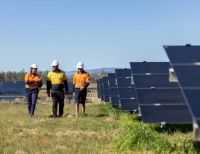A lack of professional integrity has been enabled by a culture of contempt for process and principle, the academics say.
Australians are now being regularly exposed to corporate and government conduct that is shaking their belief in accountability. Last month, Roy Morgan released the results of a survey that measures Australians’ trust in our corporate brands. Conducted annually over the past six years, the 2023 survey results show that Australians have never been more distrustful of corporate brands than right now.
The report speaks of a ‘moral blindness’ displayed by many of Australia’s corporate leaders. This lack of professional integrity has been enabled by a culture of contempt for process and principle. The conduct is often simply a brazen disregard for any established checks and balances that may deter or punish such behaviour.
Some egregious examples of recent corporate transgressions are highlighted in the report: Harvey Norman's JobKeeper windfall, Rio Tinto's destruction of Juukan Gorge, the PwC tax leak scandal, data breaches at Optus and Medibank, and the resistance by Qantas to refund $2 billion to customers who unknowingly paid for cancelled flights.
This conduct, seemingly motivated by the accumulation of profit, has not been confined to corporations. The abuse of political power and the resultant corrosion of principles of responsible governance has led to analogous wrongdoing by government.
The Morrison government-inspired Robotdebt scheme, which caused untold ‘avoidable human suffering’, was described by a Liberal Party MP, Zoe McKenzie, as “one of the poorest chapters” of public administration in Australian history and ‘out of sync with’ notions of ‘personal responsibility’ and ‘integrity in government.’
In addition to this cruel exercise which decimated public trust, Prime Minister Scott Morrison single-handedly concentrated his power by appointing himself to five ministerial portfolios without the public’s knowledge, nor in some cases the imprimatur of relevant ministers, including his own deputy and Treasurer, Josh Frydenberg.
But perhaps one of the most ominous displays of moral blindness by government, in collaboration with corporate Australia, has been the ongoing approvals of fossil fuel projects as we hurtle towards irreparable damage to our planet.
Former Fire and Rescue NSW commissioner Greg Mullins has rightly declared the federal government’s persistent sale of coal and approvals of new coal mines as “incomprehensible” given the government’s acceptance of the science of climate change. The lack of government accountability to prevent harm to future generations of Australians by maintaining this policy also sees Australia maintain its dismal standing amongst G20 nations as the country with the highest per capita emissions from coal.
What often underlies these breakdowns in accountability is a lack of transparency, a failure to consult, an insidious normalisation of dubious practices. These failures are exacerbated when coupled with a response by the perpetrators or their agents, which declares a belligerent denial of wrongdoing, or a lame expression of regret. And so begins the slide from accountability to impunity, where impact is played down, sanctions are scant and business continues as usual.
Responsibility is also at the centre of the upcoming referendum. Next week, Australians will be asked to recognise the profound and ancient contribution of Indigenous Australians in our nation’s constitution. Tied to this recognition is a plea for Indigenous Australians to shape their lives in accordance with their experience and their needs. As a nation, we are being asked to affirm that simple right in the form of a First Nation’s voice to parliament.
At the core of the Uluru Statement from the Heart is a call for accountability: symbolic accountability which will enable us to acknowledge our history and the need to repair the deep, historical harm inflicted upon Aboriginal Australians; and practical accountability that calls on First Nations people to consult, inform and shape policies and legislation that directly impact Aboriginal lives through an elected, advisory committee, a constitutionally entrenched voice to parliament.
At a time when public trust in the most powerful players in our society and the institutions they serve is declining, the referendum provides an opportunity, in keeping with the Uluru Statement from the Heart, for Australians to finally assert “a fuller expression of [our] nationhood,” a nation shaped by values such as inclusivity, equality, and accountability.
Emeritus Professor Andrea Durbach was Director of the Australian Human Rights Centre (now Institute) in UNSW Law from 2004-2017.
Professor Justine Nolan is the Director of the Australian Human Rights Institute.
The elevation of impunity over accountability and the consequences for democracies will be explored at a conference convened by the Australian Human Rights Institute at UNSW Sydney on October 11-12, 2023.
Accountability in crisis: the rise of impunity as a challenge to human rights will bring together academics, journalists, politicians, activists, and business leaders to examine the risks and casualties of the decline of accountability, the parallel erosion of human rights and the sinking trust in democratic institutions.
Authorised by Alison Avery for the University of New South Wales, Sydney
















